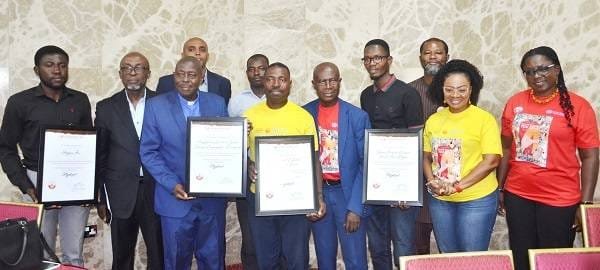[ad_1]
This year’s World Blood Donor Day has been marked in Accra yesterday with the need for Ghanaians to consider donating plasma as part of voluntary blood donation.
Plasma is the liquid portion of blood which has vital proteins needed for life-long health problems and commonly given to trauma, burn and shock patients, as well as people with severe liver disease or multiple clotting factor deficiencies.
It helps boost patient’s blood volume, which helps prevent shock and helps with blood clotting. Pharmaceutical companies use plasma to make treatments for conditions such as immune deficiencies and bleeding disorders.
Dr Shirley Owusu Ofori, the Chief Executive Officer (CEO) of the National Blood Service (NBS), who made the call, said the availability of blood and plasma was crucial to ensure safe and sustainable supply of blood and blood products for patients in need of timely treatment.
On the theme; “Give blood, give plasma, share life, share often,” this year’s commemoration focused attention on supporting patients requiring life-long transfusion and the role every individual could play by donating blood or plasma.
Last year, Ghana’s blood donation dropped from the national target of 10 per 1000 donations to 5.8 per 1000.
The CEO urged strengthened partnership to boost voluntary blood donation in the country which remained the primary means of accessing safe blood for the population.
She encouraged members of the public to become voluntary blood donors to build a resilient national blood system.
In a keynote address, the Minister of Health, Mr Kwaku Agyeman-Manu in a speech read on his behalf, stressed the role of blood donation and safe blood in the attainment of the Sustainable Development Goals (SDGs) and Universal Health Coverage (UHC).
The activities of the NBS over the years, he said, was an indication of the government’s commitment to ensure that the Service lived up to its mandate effectively.
“We should be determined as a country to move towards total voluntary unpaid blood donation,” he urged and called on the media and Civil Society Organisations (CSOs) to advocate total voluntary unpaid blood donation as was being done in the fight against illegal mining.
The Minister proposed four key intervention programmes, namely, information and knowledge sharing intervention, formulation of strong institutional partnerships, building of staff capacity and learning and implementation programmes to boost blood stock in the country.
He said a strong blood service was critical to prevent many needless deaths and ease pressure on health facilities.
The Country Representative of the World Health Organisation (WHO), Dr Francis Kasolo, urged the government to increase investments towards building a sustainable and resilient national blood system.
He asked that systems are put in place to increase voluntary blood donation in the country, adding that adequate supply of safe blood could only be assured through regular, voluntary, and unpaid donations.
As part of the event, a contest dubbed “How blood has touched my life”, where individuals, either donors or recipients could share stories accompanied with photos and videos to inspire others was launched with entries expected to end by August 31.
Citations were presented to five institutions, namely the Holy Spirit Cathedral in Adabraka, the Ghana Muslim Mission, Happy FM, Electricity Company of Ghana (ECG) Power Queens, and the Presbytarian Church, Ebenezer Congregation in Mamprobi for the their contributions towards blood donations over the years.
BY ABIGAIL ANNOH
[ad_2]
Source link



